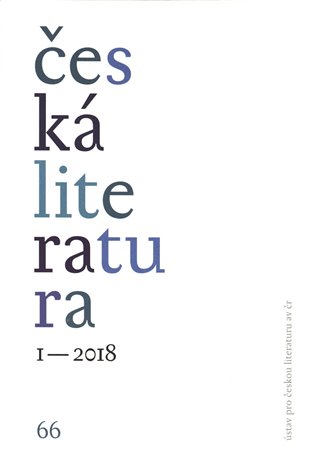„Jsme spolu tak zadobré, že mi slíbil, abych se nestaral,
že tomu pomůžeme a že projde.“
“We get on so well together that he promised me not to worry about getting help and that it would go through”
Censorship of the work of Karel Hynek Mácha
Author(s): Petr PíšaSubject(s): Czech Literature
Published by: AV ČR - Akademie věd České republiky - Ústav pro českou literaturu
Keywords: Mácha Karel Hynek; censorship; Czech Romantic poetry; 19th century; history of publication
Summary/Abstract: This study focuses on the issues surrounding the effects of censorship on the publication of Karel Hynek Mácha’s work before 1848, e.g. on the basis of previously unresearched lists of books passed by the censors. It presents the way the censors dealt with each work by Mácha in chronological order, primarily focusing on the issues involved in Cikáni and Máj, the former having been rejected in February 1836, whereas the latter was passed for publication that same month. The anecdote that has been passed down regarding Mácha’s informal intervention with Zimmermann the censor is most likely true, but then in contrast to the previous tradition new sources indicate that in the case of Máj the censors were responsible for some unidentified alterations in the manuscript. The study also sets the newly discovered records of the censorship of the posthumous edition of Mácha’s works under preparation within the context of other reports on its preparations, and shows that censorship had no direct part to play in the lack of success of the publication of Mácha’s posthumous works in the 1840s. It also focuses on the deletions in Karel Sabina’s biographical study of Mácha and deals with the question of why Mácha’s Cikáni was rejected by the censors in 1836, but then passed in 1842 and 1844. A role was probably played here by the genre description of novel, which was problematic in the context of censorship legislation.
Journal: Česká literatura
- Issue Year: 66/2018
- Issue No: 1
- Page Range: 34-69
- Page Count: 36
- Language: Czech

